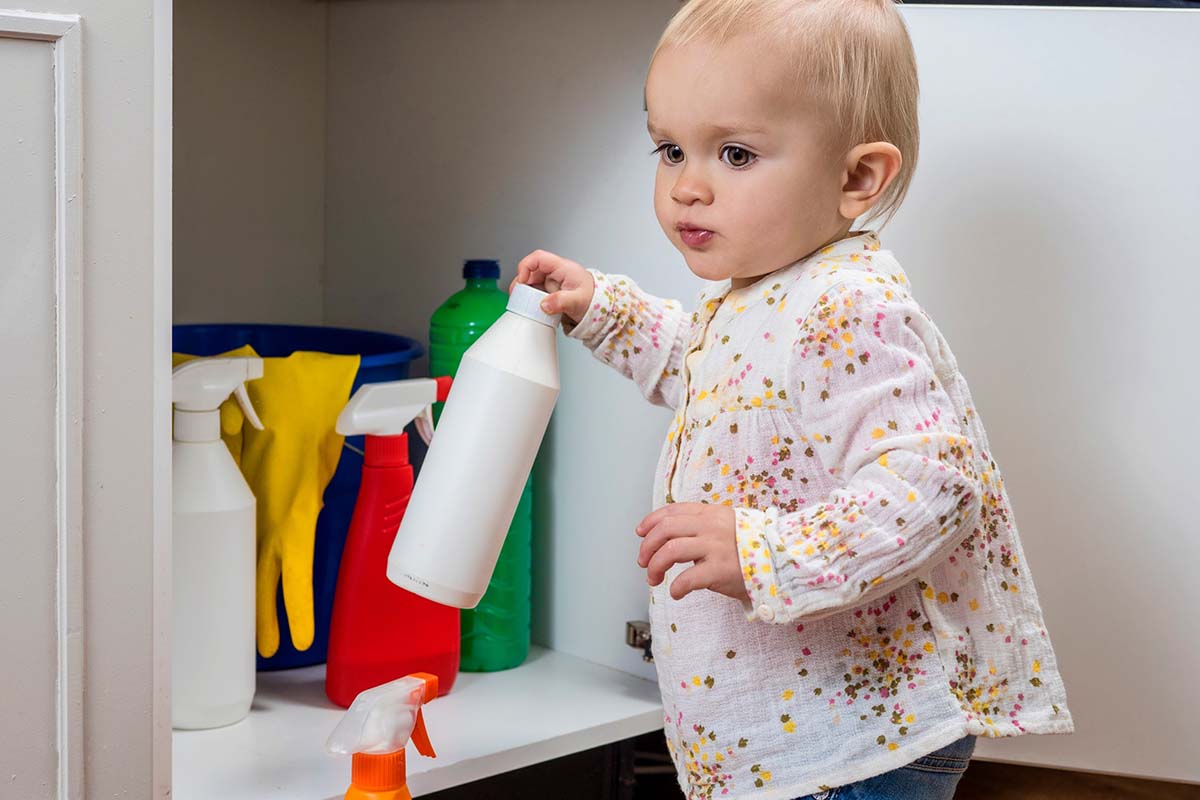Discover the importance of selecting safe swimwear for your child. From prioritizing quality...
Read MoreEffective Monday, January 5th, Inspira Health is now at Yellow Alert Status: Masks for staff, patients and visitors in all high-risk areas across our facilities are strongly recommended.


On the side of many refrigerators in America is a magnet with an illustration of a skull and crossbones plastered across it that reads “Poison Control Center” and an accompanying phone number. In many cases, this magnet and the information contained within it goes largely ignored on a day to day basis—that is, until it’s needed. What to do in case of poisoning isn’t top-of-mind for many people.
Complicating the issue even further is knowing when to call Poison Control, a national service that can be reached 24/7 at 1-800-222-1222.
Young children left unattended for even the shortest amount of time can easily find their way to cleaning products and other dangerous chemicals. But if an adult isn’t around to see exactly what happened, it can be hard to figure out if help is needed.
Here are some ways to help identify a poison emergency, and what steps to take.
In most situations, poisonous chemicals are clearly labeled, making them easy for adults to identify. If you’re unsure, it’s best to err on the side of caution.
“It can be difficult to know what substance someone came into contact with if you weren’t there at the moment, so even if you don’t see any symptoms, it is best to call Poison Control immediately,” said Matthew Warner, M.D., chairman of Emergency Medicine for Inspira's Elmer, Vineland and Bridgeton campuses.
Like most other medical emergencies, acting fast is of the utmost importance when someone might have been poisoned. The National Capital Poison Center (NCPC) says that before calling Poison Control, there are a few quick actions that you need to take to minimize the victim’s risk of serious health complications:
“In a poison emergency, the timeframe for getting medical attention is much shorter than that of other common injuries, such as a fractured bone. This is part of the reason that it’s so important to know how to get help quickly,” said Dr. Warner
The NCPC lays out explicit guidelines for when you should call 911 for a suspected poisoning, instead of Poison Control. Call 911 immediately if the individual collapses, has a seizure, has trouble breathing or can't be awakened.
“In situations where the victim falls unconscious or begins seizing, it’s necessary to get emergency medical attention as soon as possible. These symptoms are often indicative of severe poisoning that requires immediate medical help,” said Dr. Warner.
Inspira Health is a high reliability organization (HRO), which means safety is the top priority for patients and staff. To make an appointment, call 1-800-INSPIRA.

Discover the importance of selecting safe swimwear for your child. From prioritizing quality...
Read More
This article provides a guide for caregivers on how to keep their children healthy during the school...
Read More
Best practices for baby safety are constantly changing, and keeping your baby out of harm’s way...
Read More